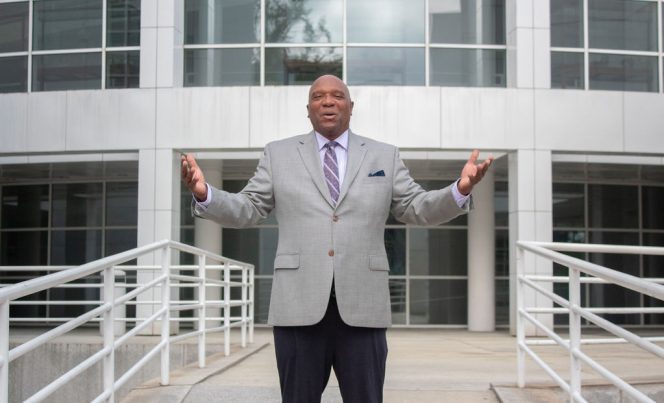CHAMPION STRATEGIES – PUBLIC SPEAKING WORKSHOP – MAY 13, 2021
Public Speaking Tips
Getting an Audience to Listen
- View an invitation to speak as an opportunity, not a summons that appeals to you about as much as an IRS audit.
- Compose a statement of purpose as a starting point to your writing. Your purpose can be to entertain, inform, inspire, advocate, motivate, educate, persuade, and yes, even to SELL!
- Audiences are primed to listen at the beginning so craft an opener that will establish rapport, set the tone, enforce your authority to speak on the topic, and arouse interest.
- Write your speech as a conversation, not a lecture! Use plenty of pronouns: you, I, us, we. Engage your audience; be interactive.
- Choose gut vs. brain words. Do you use verbs like postulate, fabricate, ascertain, surmise? If so, cut the brain words and use gut action verbs, such as, cry, jump, ooze, roar!
- Everyone loves a story, anecdote, or joke, but only use ones that are true (or perceived to be true) because they offer insight about the topic, the speaker, or the event, and they’re interesting or amusing and easy to understand.
- Only use visual aids if they enhance your message. Do not let them detract from your spoken message.
Presentation Yeses
When preparing to give a presentation, make sure you can answer YES to these questions:
- Do I know the one thing I want the audience to remember? If the answer is no, your speech has no focus.
- Do I know how much people can remember? Rule of thumb – if you give a five minute speech, your presentation should have only one main point.
- Are my figures clear? Audiences are slow to receive and analyze data. Make charts and graphs simple, with key points emphasized. For complex information, prepare a handout, but try to limit it to one page.
It’s Still the Words
Think about great speeches you’ve heard or read.
- Martin Luther King Jr., ” I have a dream.”
- Franklin Delano Roosevelt, “The only thing to fear is fear itself.”
- John F. Kennedy, “Ask not what your country can do for you, but what you can do for your country.”
- Abraham Lincoln, “We cannot dedicate, we cannot consecrate, we cannot hallow – this ground.”
But even in an electronic age, it’s still the words that live in our minds.
An unforgettable speech takes research, planning, and the right words. The first consideration in finding the right words and constructing an effective speech is know thy audience! And know the type of speech appropriate for the audience. For example, remarks to busy executives should be challenging, quick, and engaging. Regardless of the type of address, waste no time in making a quick, clear, and simple connection with the audience. Find something in common with your listeners and lead with it.
Speak With Confidence and Power
Prepare, Relax, Be Positive: three suggestions from the editors of Communications Briefing, a Alexandria, Virginia based publication providing business communication advice.
Prepare – We’ve all heard public speaking tips about being prepared, such as “Know your audience;” “Do your homework;” “Practice, practice, practice” – and they’re good tips to follow, but some other important preparatory steps include practicing pronouncing difficult words and names, double-checking facts and figures, and cutting material that isn’t vital to the speech’s main message.
Relax – Take gradual steps to overcome stage fright and anxiety about public speaking. Practice a speech to an empty room, then deliver to smaller, safer audiences such as family members, co-workers, and close friends. When practicing, record your remarks on audiotape to listen for any grammatical errors or mispronunciations; then video tape your presentation to ensure you are not doing any annoying or distracting gestures or body movements. Lastly, determine what motivates and appeals to your audience. You’ll be able to match your message to their interests and they’ll be more responsive to you.
Be Positive – Your attitude helps determine how well the audience will receive your message. Most audiences want you to succeed and to be yourself; sincerity and enthusiasm often prevail over a lack of public speaking experience. To calm your nerves, visualize yourself giving a successful speech. And remember, audiences are attending your presentation because they are interested in the topic.
The Rewards of Public Speaking
“A good speech is the single most cost-effective marketing and public relations tool any organization can have,” advises author Joan Detz in her book How to Write and Give a Speech. Giving an electrifying, informative, and entertaining speech is comparable to making 50 to 100 cold calls in one day. You may not make a sale today, but you may have sold yourself and your company/product to a future client – a member, or two, of the audience!
A must after every speech or sales presentation: get the audience’s business cards and follow-up with a letter and phone call.
Dispelling the Myths of Public Speaking
Myth Successful speakers have natural speaking voices.
Fact The best speakers are those who connect with an audience by being themselves and speaking conversationally. Speak as if you are conversing with each audience member, use eye contact, smile, and target your message to make a personal connection.
Myth Good speakers do not have a fear of speaking.
Fact Every speaker, experienced or inexperienced, feels anxiety before a presentation. Anxiety can be reduced through relaxation techniques, such as deep breathing.
Myth Begin your presentation with a joke to loosen up the audience.
Fact Humor is an important component of any speech, but it must have relevance to the topic under discussion.
Myth Effective speakers do not use notes.
Fact Skilled speakers have found ways to use notes without distracting from their message. From your written copy, condense your remarks into outline form, and then create a second outline of keywords that will remind you of the full concepts designated by the keywords.
Myth Excellent speakers are spontaneous.
Fact Effective speakers rehearse their presentations. Practice is essential. The more familiar you become with your material, the more the words flow with passion. The more comfortable you feel with your words, the more naturally you present your speech. Good speakers practice… and practice again!
Timing Guidelines
We live in a fast-paced age so try to keep speaking engagements 20 to 25 minutes (but always allow additional time for Q&A). When writing and editing your speech, remember this general rule of thumb: Every double-spaced page of copy is about 90 seconds of speaking.
Speech Structure Checklist
An effective way to make the beginning, middle, and end of a speech work together is to use a basic rule of communications: Tell them what you’re going to tell them. Tell them. Tell them what you told them.
In the beginning, preview what is to come. In the middle, present most of what you have to say. In the end, summarize what you said.









